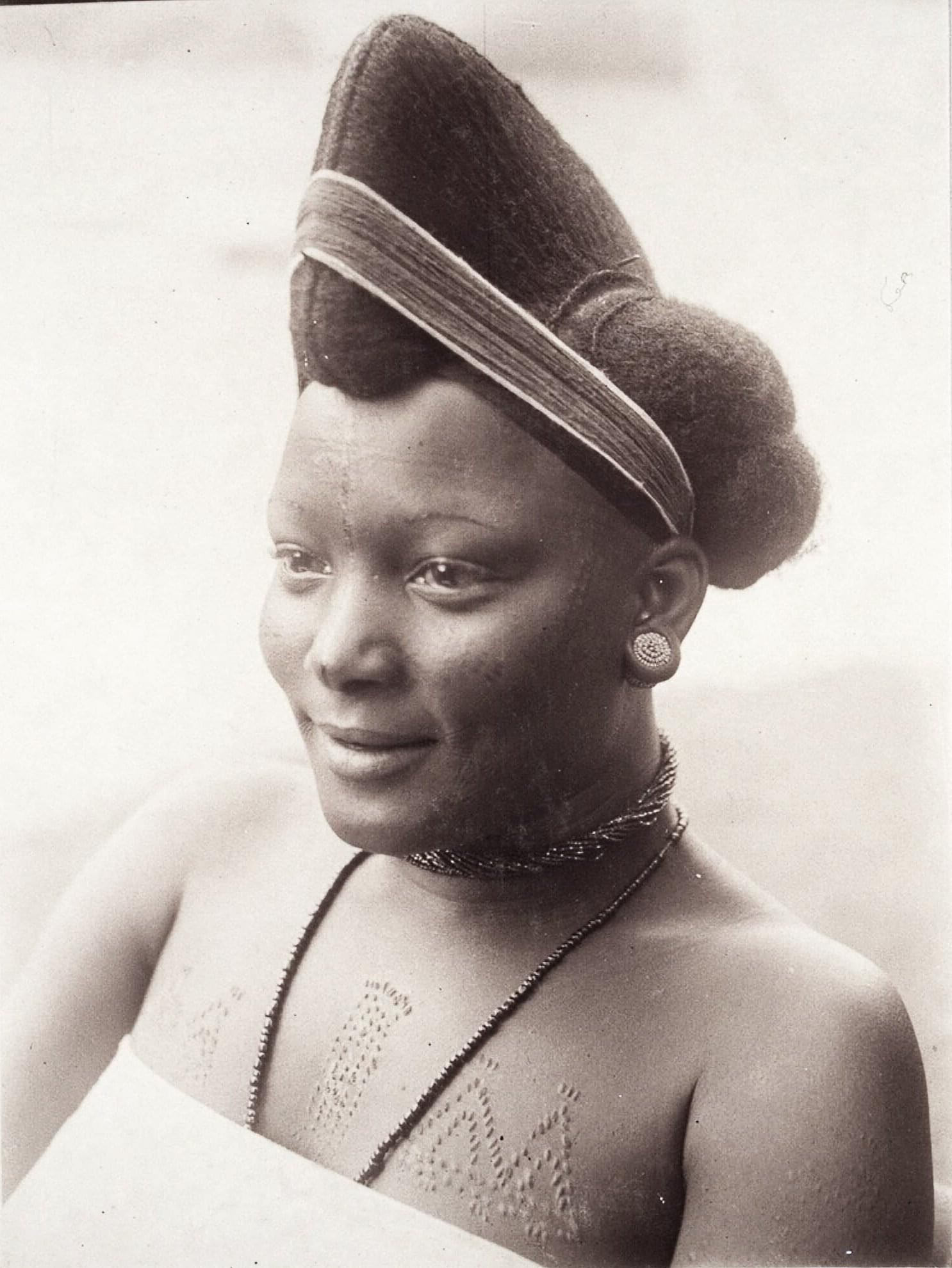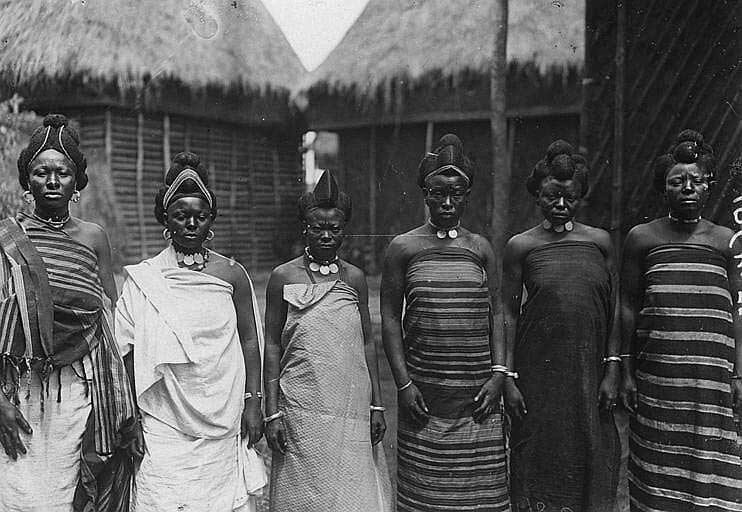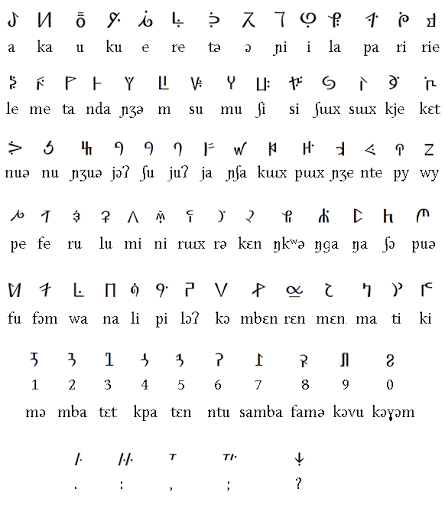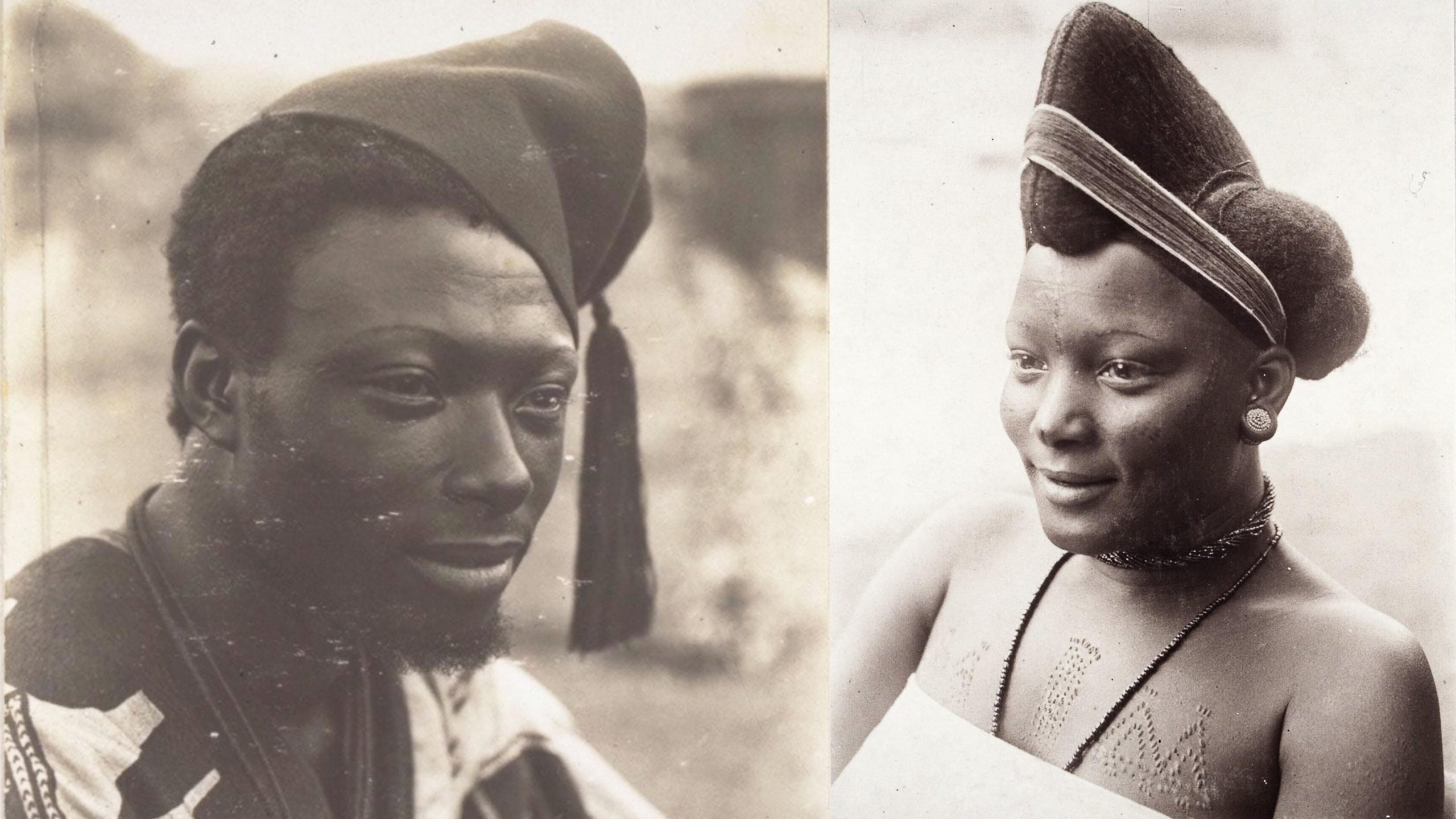“King Ndjoya’s favourite wife, with tattoos on her skin, head and shoulders, seen from the front. King Njoya had 500 wives.
King Ibrahim Njoya was the ruler of Bamum, the great ethnic group in what is now western Cameroon, in 17th Century from the years of 1860 to 1933.
The history of the Bamum people was preserved before his reign at the end of the 19th century, mainly through oral transmission from one generation to the other.
Naturally he prefers some of them to others on the basis of their gifts, their appearance or their high parentage. The woman in this picture belongs to the favourites of His Black Majesty.


There is something about her one finds immediately attractive, and without her being aware of it we can say that her slogan is Be happy!. You are immediately struck, on looking at this picture, by the skillful hair-arrangement.
It takes hours to prepare, but is only renewed every 2-3 months. On her face and on her bre_ast the woman has a lot of tattooing.
These deeply cut figures are the favourite and most lasting jewellery which our women and girls possess, and one often admires how cold-bloodedly our female youth allows this undoubtedly painful procedure to be carried through on their bodies.
King’s wife wears 5-7 cm long plugs in her ears skilfully wound with white or coloured glass beads. Beads are characterstic costume jewellery for our King s wives and King s daughters.
Ordinary women wear, instead of plugs decorated with glass beads, plugs of wood like cork, or even nails, screws and spent cartridges.” (A. Wuhrmann, 1917, Commentaries to Slides from Bamum, E-30-0,6. K 344). –
Fumban, Kingdom of Bamum, Cameroon, 1910’s. Photograph by Anna Wuhrmann.
King Njoya had 500 concurrent wives.
He started his alphabet as a pictogram, but later it developed some 70 characters fused with Arabic and Vai scripts.

In conclusion the script A-ka-u-ku was produced, and since then it retains better than the previous oral narratives the rich traditions of the Bamum.
Njoma founded schools and instructed the language as a medium of education to ensure that written language was widely accepted.
He also directed all the government levels to use the language.
King Njoya has been commended for his brilliance and everything, like a corn shrink, in history books, not just for his writing method.
He was said to be affable, to be open to his people and to listen to their concerns at all times.
 The African History Truly African
The African History Truly African

